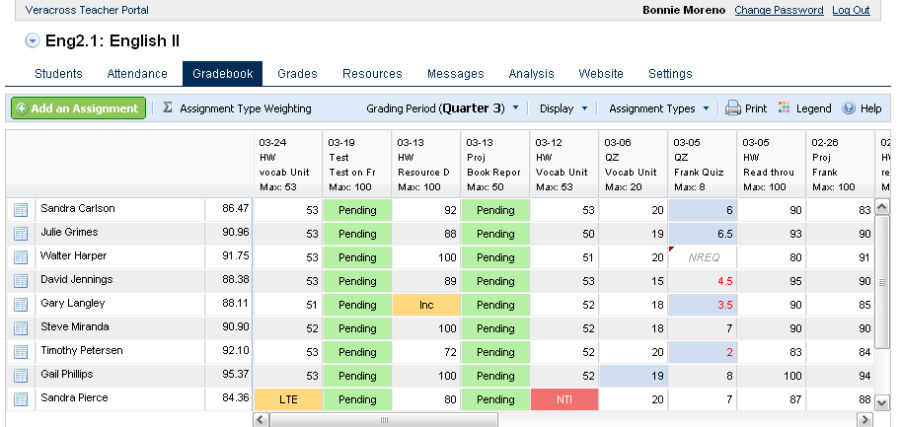Opinion: Grading System is Unfair, Outdated
Opinion: The following is an opinion piece, and does not necessarily reflect the views of The Willistonian.
The grading system that exists in America should be eliminated.
Throughout high school, the basis of a students success is revolved around the grade point average that exists in their transcripts. Students spend countless hours worrying about that number and comparing it those around them. It takes a large affect on the mental health of teenagers who wonder how numeric grades will affect the future.
The grading system in America is not a singular system, but rather a system that differs from school to school. In some schools, the overall grades that students receive may be primarily based off of tests whereas at other schools, it may be a variety of aspects of the classroom including participation, classwork, homework, tests, quizzes and collaboration with peers. This system evokes an unfair comparison from student to student and creates an inequality in the college process.
For example, two students, both at different schools, may be taking the same course and working equally hard yet receive completely different grades. It is possible the first student, graded on classwork, homework, participates heavily and takes tests, yet their grade is lower than the student who does all of the same things, yet is only graded on tests.
Rick Reis, a researcher at Stanford University, argues, on Tomorrow’s Professor’s Posting on Stanford’s website, that the current grading system in America, in addition to being unfair from a school-to-school basis, has a negative impact on professors and teachers who must then embark on seemingly endless hours of grading.
“There is a better way, one that would free instructors from endless, mind-numbing hours of writing justifications and explanations on their students’ work. It would not give partial credit, nor would it have graduated levels of performance. Rather, it would rely on simple, one-level rubrics anchored in demonstrating achievement of outcomes,” Reis argues.
The current grading system also has been scientifically proven to have a negative effect on the mental health of students. According to the Suicide Prevention Research Center, depression has been directly correlated with lower grade point averages, an effect of the American grading system. Students compare their grades to one another and may associate their grades to their self esteem and the way they view themselves, which creates an unhealthy perspective on confidence.
However, while there are many negative effects of the current grading system in America, it would take a great deal of time to completely wipe out the existing system in America and create a new one. The new system would need to balance all aspects of the learning experience; student motivation, academic standards, responsibility, minimizing school-related anxiety, while creating a positive environment for faculty and staff and incorporating a larger emphasis on creativity. In order to create a system that includes these standards and goals, countless hours of work, ideas and thoughts would need to be included.
At Williston, there are many reasons that the grading system has not been switched. Greg Tuleja, the Academic Dean of Students at Williston who has worked at Williston for nearly 40 years, notes that while Williston has certainly thought of altering its ways, it has never been the top priority of changes that need to be made.
“Occasionally, there has been conversation about conversion to letter grades,” Tuleja explained. “But, this has always been the way we have done it. It would require deep scrutiny and long term study to make sure that what we change to would not be a disadvantage to the students.”
Jules Constantinople, a four year senior from East Haven, Connecticut, argues that the current system in America exhibits very little of what goes on in a student’s day-to-day life and is an unfair metric of student achievement. Jules spent one year at her local public school, East Haven High School, before transferring to Williston, and recognizes the inequality of grading at different schools.
“There needs to be change regarding the grading system in America,” Jules argued. “It reflects very little of who a student is, the work they put into a class, their growth and what goes on behind the scenes and ultimately, is a very subjective system. It is also lacks the ability to accurately compare students who go to different schools.”













Madison Damiani • Jun 22, 2023 at 4:55 PM
This is an excellent, excellent article.